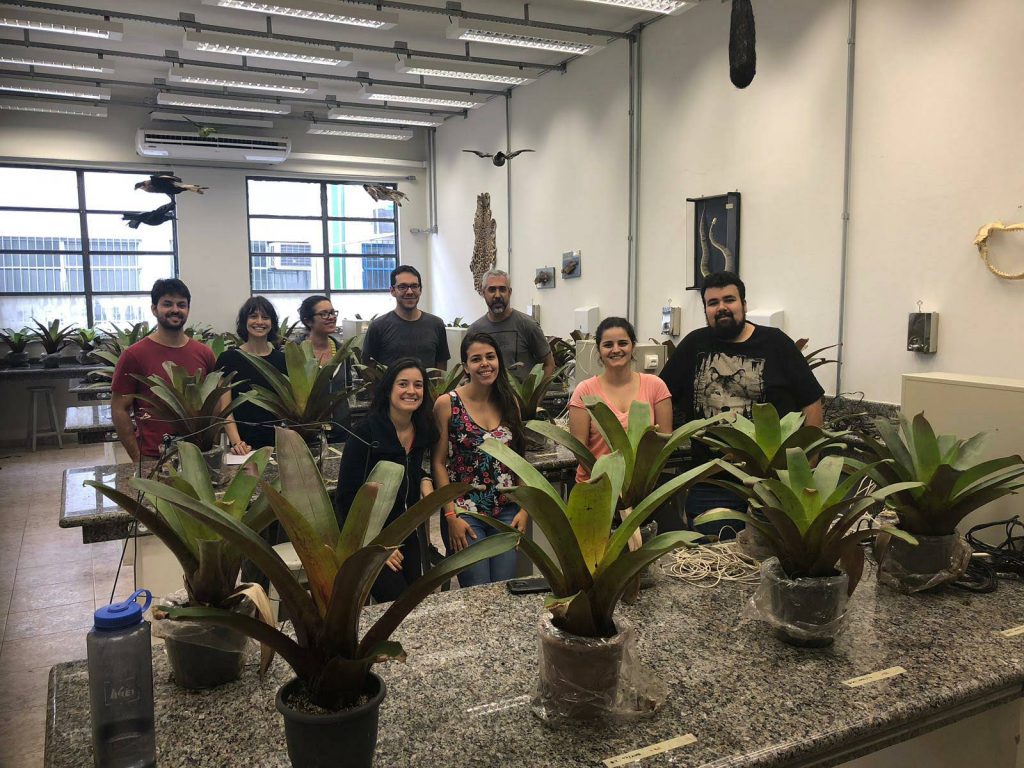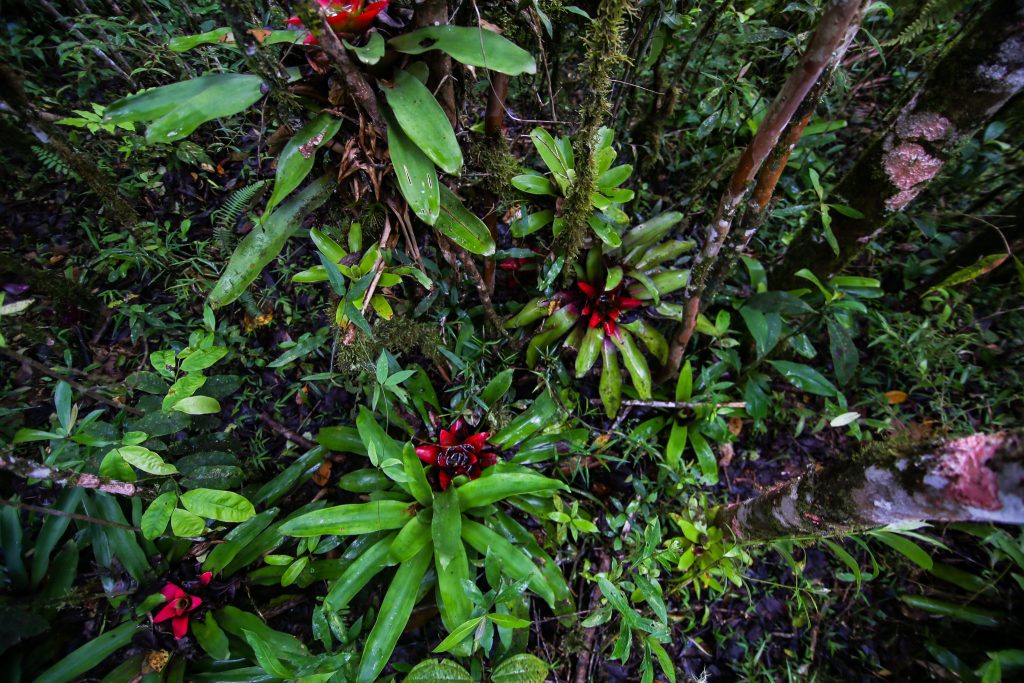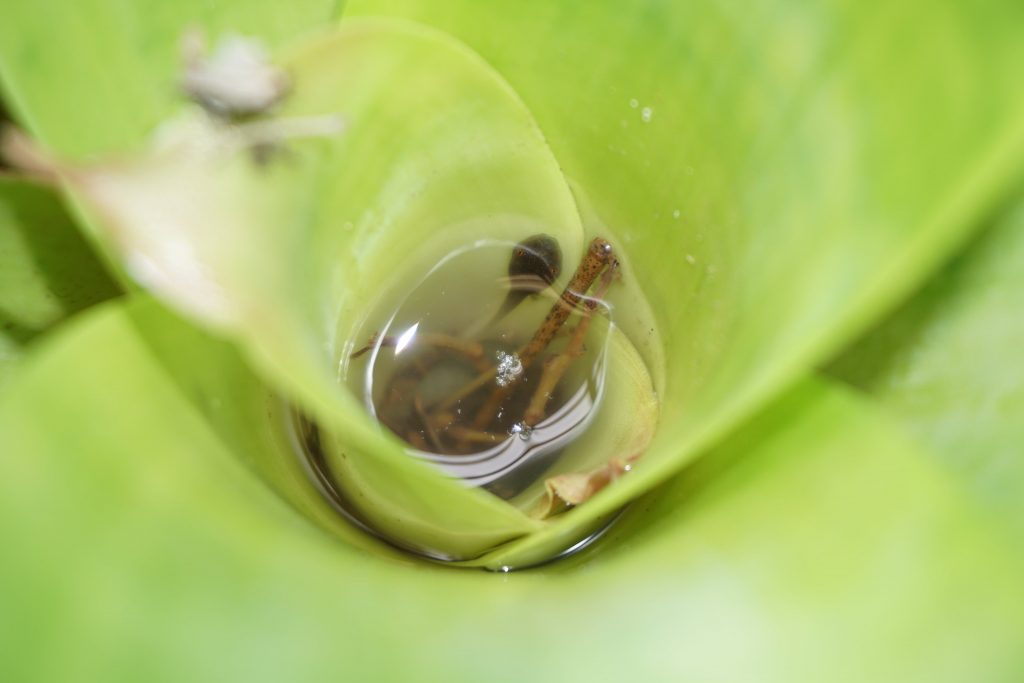Climate warming not only threatens individual species, but also disturbs entire ecosystems. A new study in Nature Climate Change by Dr. Sasha Greenspan and other Becker Lab members and collaborators explored how warming effects on ecological communities influence the animal gut microbiome, a group of microbes that helps animals stay healthy. They set up miniature aquatic ecosystems with tadpoles, bacteria, worms, mosquito larvae, and other insects within water-holding tropical plants called bromeliads and exposed them to a warming gradient. They found that warming altered community assembly and species interactions within the ecosystem – for instance, which species were present and likely feeding on one another – and that these changes compromised gut microbiome health in tadpoles, leading to reduced fitness. Findings suggest that the vertebrate microbiome is sensitive to the many ways that climate change alters the structure and functions of ecological communities. Check out media coverage of this article by The Conversation and a “Behind the Article” piece by Drs. Greenspan and Becker.


